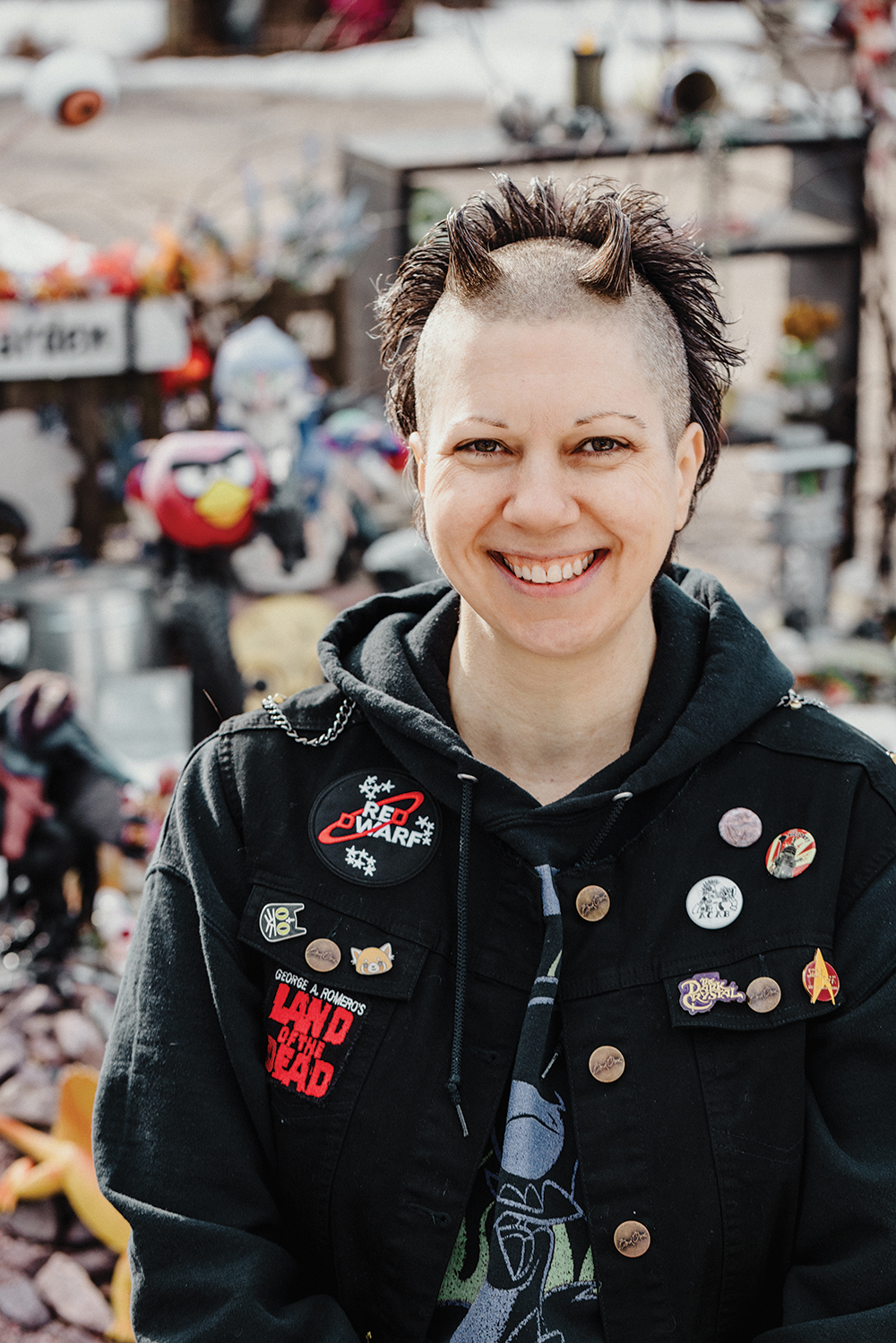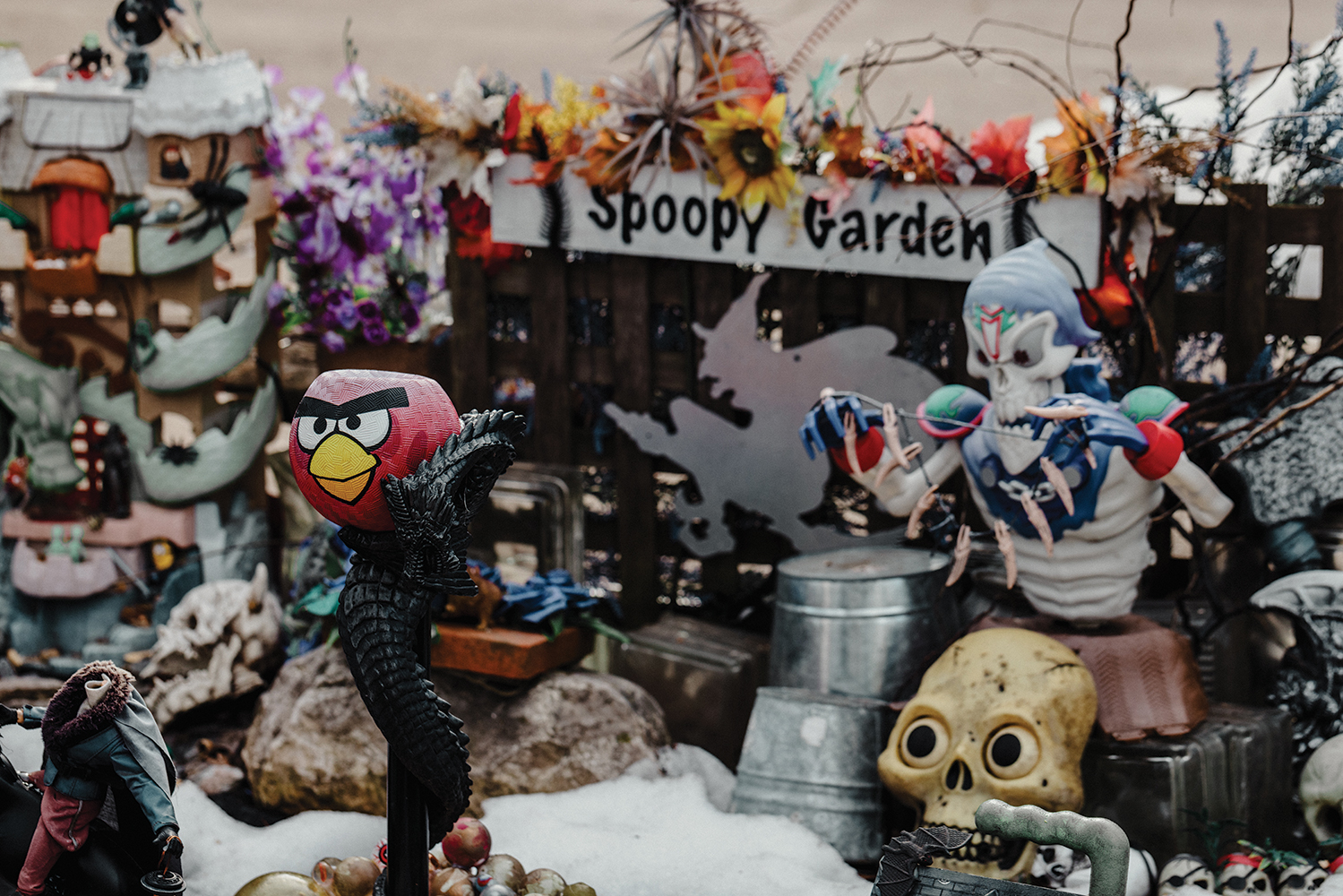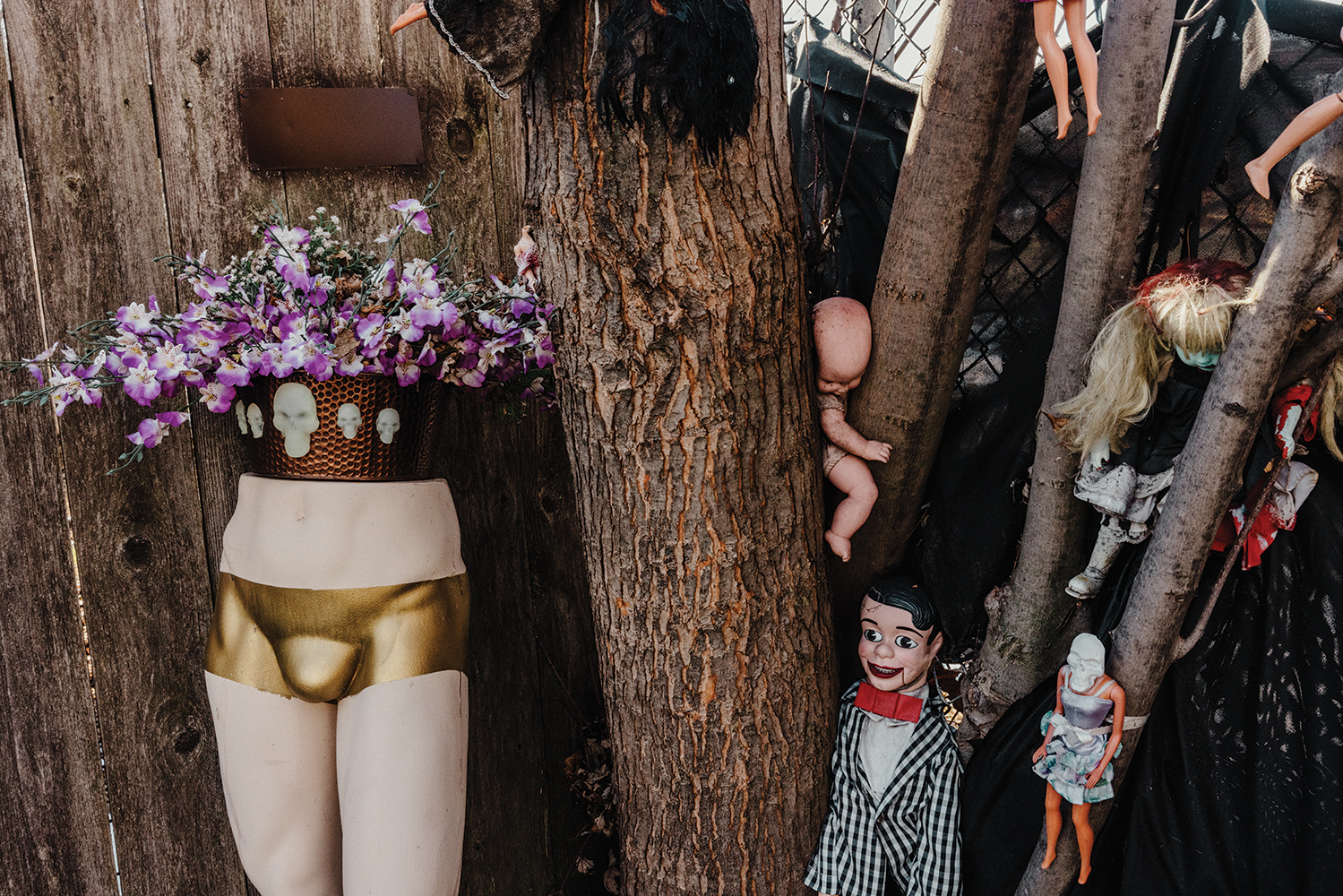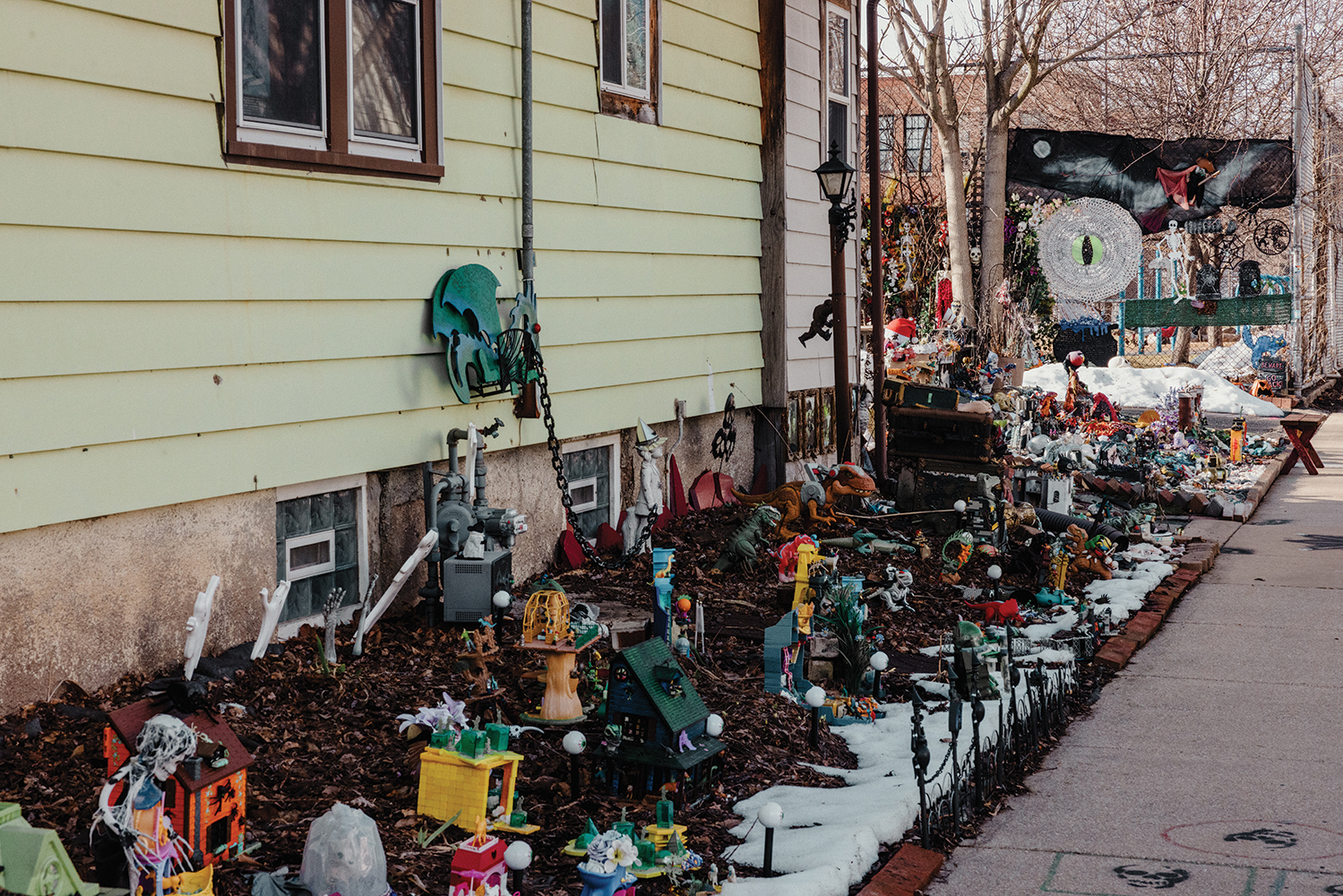If you think of Satanists, is the first word that comes to mind, love? I asked Bill Blanton (they/them) how they would define their faith as a Satanist, and their answer, “Love. It always comes down to love. We always come back to love. It’s what gives me hope and an opportunity for growth. It is all love.”
Bill has grown into their understanding of what it means to be Satanist and how they express their faith, “When I was a teenager, I thought that meant setting up candles and a salt circle and doing this elaborate thing. And now I know that it doesn’t have to look like that.” For them, expressions of their faith might “look like going on a walk with a friend and drawing chalk on the sidewalk. You know, moving with intention.” They came to their understanding with time, “It took me a long time to boil it down, because for many years I thought I was a non-practicing Satanist. But then I’ve realized no, I’m actually very much practicing, and I’ll keep practicing.” Adding that, “I’m not thinking ‘I’m being a Satanist’ as I’m picking up trash in my neighborhood. I’m thinking I am bettering this area for everyone because I love this area, and I love the people who walk in this area, and I love the environment and the animals in this area. I’m not thinking ‘Hail Satan,’ I’m thinking, ‘Yay, let’s connect with our environment.’”
Growing up an Outsider
Bill does share the pain of growing up as an outsider, and how they are deeply rooted in loving family, “I have always very, very much received love and been given love. I’ve had an amazing family who loved me openly and deeply, and I think that they really showed me how to love not only myself but others.” Unfortunately, Bill did not receive such love in the area where they grew up. Their parents had been “forcibly raised in religion, and they didn’t want to do that with me.”
Bill goes on to say, “I was going to rural Wisconsin schools where everyone knew all the [Bible] stories, and I was completely clueless on anything to do with religion. I found it really alienating.” Bill adds that their queerness “definitely impacted my othering in school. I knew I was queer very, very early. I knew my gender wasn’t correct, but I didn’t have the words for genderqueer when I was a kid. The constant othering of me made it easier to push away from Christianity. And there were literally no other religions practiced in the schools that I was in. There were no Jewish children, and there were no other Atheist-raised children there. There were only Christian children.”
Bill found community in underground communities “which definitely were the other queers and definitely were the other autistics. I found community in other people who liked not acting like everybody else.” In particular, punk rock became a place of welcome, “I liked punk rock because you can stim and stuff in public and it fits in appropriately at a punk show. And you can act like yourself. And even though there’s some conformity to punk, the underground in general, when you don’t conform to that, it’s still accepted just fine.” Bill says that “the common thread is not being the same as the general population, whether that looks like a punk rock costume or looks like whatever.”
Bill shared their own take on the “whatever” of punk rock costuming, “I always like to do kind of a combination—I would do hyper-femme and then punk rock on top of it—mashing the two together felt right for me.” Sometimes that looked like thrifted “1960s polyester dresses with combat boots with spiked boot chains, a black leather vest, the spikes and all the punk stuff painted on it. And then a green Mohawk,” and other times it looked like layered lingerie, “I would wear slips as dresses, but I would wear like five of them. So I would wear a full length slip as the base dress and then I put a bunch of slips over the top of it to create a dress. It was all very thrifted and very lacy and bright colors and prints and no one else was dressing like either of those things. But that was fine, and it fit with my community of underground punk rockers.”
Spirituality and Accessibility
Bill told me they did feel a call to the spiritual early. In high school they tried to read the Bible, but, “It was lost on me. Any messages in there that I would have agreed with, I wasn’t able to get through the text to get to the root of any of the messages, so I couldn’t understand why anybody reads it over and over. But now I understand you have to read it over and over to get to those messages, and I do understand now why people carry a careworn Bible with tabs in it like that. It makes sense to me now, but when I was a teenager I couldn’t understand why anyone would want to try reading that over and over again.”
For Bill, faith developed in personal expression, “So I find that when I need spiritual interaction, it’s more looking to myself. And because Satanism is really about the self and worship of the self, which sounds really selfish, but it’s actually looking at how you can interact with things and valuing your ability and your needs and your gifts. So when things get hard or when things are especially easy or joyful, I definitely feel that connection with other people through love; that’s where my spirituality lies.”
As for their own faith, Bill rejects the official institutions of all kinds, including the Church of Satan, saying they put as little effort as possible into official things. “I read their stuff, but I don’t memorize it. I don’t subscribe to their plans. I do love their efforts in the community.” Bill clarified that, despite rejecting the official organization, they are still Satanist, “I think it is the most accurate description, and I do like that it makes people go ‘ew!’ It very clearly says, ‘I’m spiritual, but I spit in the face of your spirituality.’ It helps me cull out the people who aren’t worth discussing religion and spirituality with.”
Bill goes on to clarify what this confrontational quality means for them, “‘Spit in your face’ basically is a term to get past the people who aren’t willing to even have an open discussion and aren’t even willing to learn anything about me. They’re not bringing ideas in a good faith way. I don’t think it’s worth my time to try to mess with that. I want to connect with people. I literally love people of all religions and care deeply about their spirituality and their religion and actually respect that very deeply.”
No Hate, No Limits
Bill has no time for those who choose to live into hate or limits, and has all the time in the world for those who walk in love and welcome. Bill turned their yard into art for their neighborhood. “I have turned the majority of my yard into a spectacle of art and toys designed to delight and maybe give a little fright.” They also take joy in “hearing what other people think is happening in the scenes I create. It’s my favorite part. It is a wonderful way to connect with people and see their perspective.”
With that in mind, I close this article with a spell they shared. For this spell, we begin with a gift of tea for another or for yourself. And in preparing the tea, move “through the motions, not as a zombie with muscle memory, but preparing this as a gift for myself. This is my special treat of the day.” But don’t stop at thinking only of the treat, take that feeling of something special, and put “it into the entire act, not just the holding the cup for that first sip, but in the measuring and the brewing and pouring the tea in the cup and putting it on the table and the warmth in your hands just connecting with your body and the objects, whether that’s tea or food or a book—all of the senses intertwined, that’s the connection and it’s anything that you connect deeply with. Just root yourself in it.”
And for each of us reading, maybe you find for yourselves as I find for myself, rooting in the intentional love of this deep faith, this challenging faith, this powerful loving faith of Satanism expressed by Bill Blanton.
Vica-Etta Steel is a Vicar at St. John’s Lutheran. She also serves as a public chaplain at the Madison Farmers’ Market, at coffee shops, and on Tik-Tok. It is her joy to work with people across the spiritual spectrum, and the many atheist and agnostic people who taught her how to believe deeply in love, in community.



























0 Comments